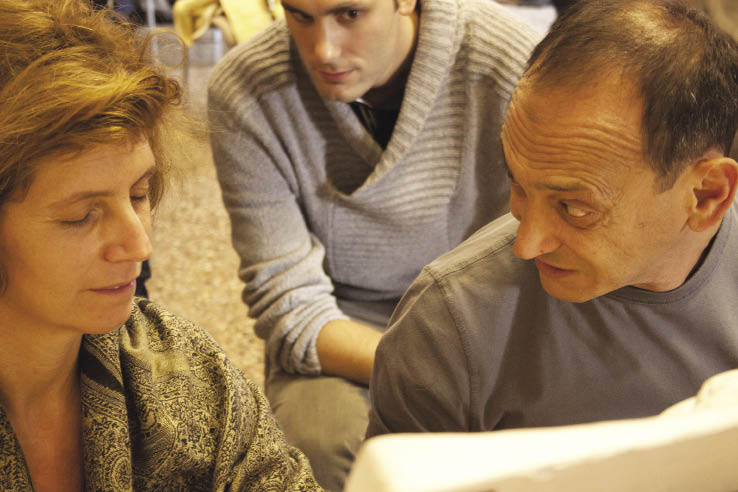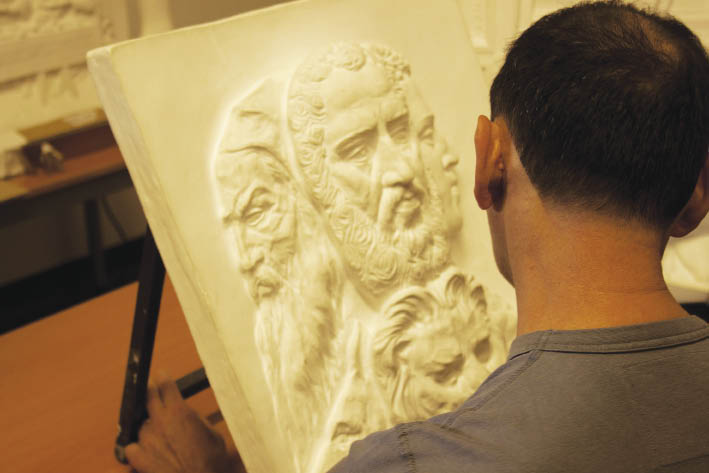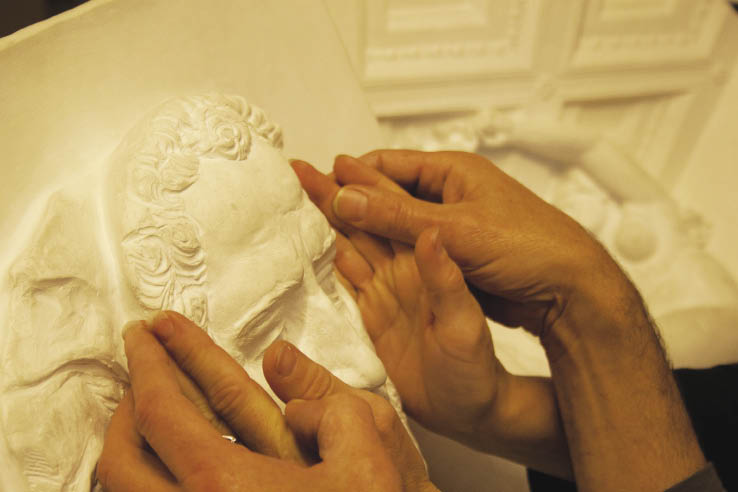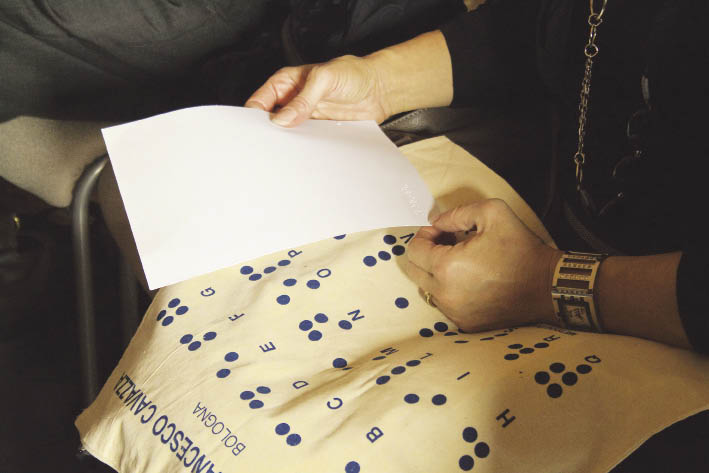

Last October 20th, the Onlus Association Fiori di Campo (wild flowers) organized, in collaboration with the Institute for the Blind Francesco Cavazza, a visit at the tactile museum Anteros, in order to raise funds for interventions for children with visual impairment and all children living in situations of vulnerability and disadvantage. The choice of the name Fiori di campo was made by founders Mara, Elisa and Marco to remind everyone, through a metaphor, how within each human being a flower is hidden, simple and spontaneous, ready to blossom naturally. Their message is clear and discreet, brought forth with poetry from shared thinking, from lives that intersect to give breath and heart to concrete ideas aiming for the promotion of educational projects "embraced" for the quality of a helping relationship. These are precious opportunities for the growth and the right of children to serenity. "Behind every project," the partners and friends tell us, “is the pleasure to have given something of ours" and it is based on that principle that it is important to take time to understand the meaning of "leaving a trace". In only one year of activities, the Association has achieved considerable results: at Bologna's Sant'Orsola-Malpighi hospital, a project took place aiming at providing psychological support to children with rare diseases, patients or visitors of the hospital; as part of the project called Doctors are measuring me a community clinic for auxo-anthropometry was established for the examination and monitoring of the phases of growth of children with special diseases; the project I am a volunteer, and you? is a training course for volunteers, educators and professionals who work with children in difficult circumstances; finally, the project Smile Exchanges is a game where smiles are exchanged, and games and books gathered and given to the hospital waiting room.

We must recall how Fiori di Campo supported
the Istituto Cavazza's project vediAMO
"Summer Vacation 2012", dedicated to blind
and visually impaired young people, by funding training and educational
modules on orientation, mobility and autonomy.
Therefore, the visit to
the museum was for everyone an opportunity to reflect on the meaning of
making space within ourselves for that other self which often
represents us and suits us. What does it mean then to give time,
in a social and cultural climate in which it is essential to know how to
give some of our time. It requires us to consider the meaning we give to
the temporal dimension, how much we get involved and listen to people and
do things that go beyond our routine, our favourite occupations, the hours
in which we organize activities we determine are obligations or individual
rights. Time, personified by Voracious Time, passes
quickly, reminding us of the concepts of limitation and completeness
refers to the "what and now" of our truer and more efficient
being, to teach us to plan, yes, but also to be in the moment.

If time is the precious
resource that man learns how to manage, to think about without regret, to
live intensely, and not only frenetically, it is above all an influence on
the rhythm and the seasons of life, like space connoting the places of our
existence. Time and space perception can profoundly change how we are, our
own internal structure, what we become because of our ability to know how
to do and how to be, in time, in space, beyond what we have learned and
where we sometimes have found shelter. To learn how to listen, even
through tactile and visual perceptions, helps us understand what it means
to penetrate the sense and phenomenal nature of time and space dimensions.
Observing a fragment of reality and lingering on a detail is not only a
matter of circumstance, it is rather a correspondence between what is
external and what is internal: the experience of seeing in the "hidden
details" something more profound and evocative, something that brings us
back to an internal order and an opportunity for inquiry as to how we are
doing, how things are changing. The hope of leaving a trace, therefore,
goes beyond individuality: it is a collective commitment to consolidate
and maintain what, in an educational project, is everyone's legacy,
ensuring continuity. At the tactile museum Anteros, a pictorial
works of art in relief which captures the interest of children and adults
alike is the Allegory of Time represented in the form of the
cardinal value of Prudence. The masterpiece, executed in 1565 by
Tiziano Vecellio, present the iconographic subject of the passage of time
relating to the ages of man, to generations, and to the idea of spiritual
heritage, other than material. The picture portrays three human heads,
facing different directions, hanging over three animal heads. It contains
a phrase in Latin: EX PRAETERITO PRAESENS PRVDENTER AGIT NI FVTVRA
ACTIONE DETURPET which means: "From [the experience of] the past, the
present acts prudently, lest it spoil future actions". We, individually
and collectively, have to make sure that every moral and social commitment
has a goal, and that every project of value is asserted in the
present for a fair and sustainable future.